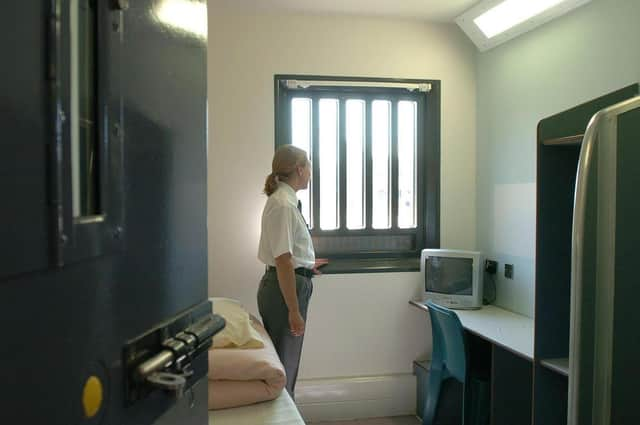Call to end female jail sentence 'lottery'


Women in the Northumbria Police area are around three times as likely to be jailed than those in some other parts of the country – but those convicted in the Durham Police area are less liable to find themselves behind bars.
The Prison Reform Trust said the unnecessary imprisonment of women remained a "postcode lottery".
Advertisement
Hide AdAdvertisement
Hide AdAnalysis of local court data by the charity found 137 prison sentences were given to women in Northumbria last year – 23 for every 100,000 in the area.
In Durham, the charity found 41 prison sentences were given to women last year – 16 per 100,000.
Overall, the rate of women’s imprisonment in England and Wales fell from 32 per 100,000 in 2014, to 25 per 100,000 in 2019.
The rate of female imprisonment in Surrey was just nine per 100,000 last year and the highest was in South Wales, where the rate was 62 for every 100,000.
Advertisement
Hide AdAdvertisement
Hide AdPeter Dawson, director of the Prison Reform Trust, said: "The majority of women sent to prison are still being sent there for non-violent offences to serve sentences of less than one year. These sentences can have a devastating impact on women and families without doing anything to address the causes of offending.”
The charity said latest projections suggest that the number of women in prison nationally will climb – from 3,200 at present to an estimated 4,500 by 2026.
Mr Dawson added: “Sustained investment in community alternatives for women and a sharp reduction in the use of short sentences are urgently needed."
Ministry of Justice said the forecast increase in the female prison population is due to the recruitment of 20,000 more police officers.
Advertisement
Hide AdAdvertisement
Hide AdA spokeswoman added: “While sentencing is a matter for the independent judiciary, we remain committed to seeing fewer women entering the criminal justice system.
“That’s why we’ve invested £7.6m in the Female Offender Strategy, which offers alternatives to prison. This has already seen the number in custody fall by 23% in the last 10 years.”